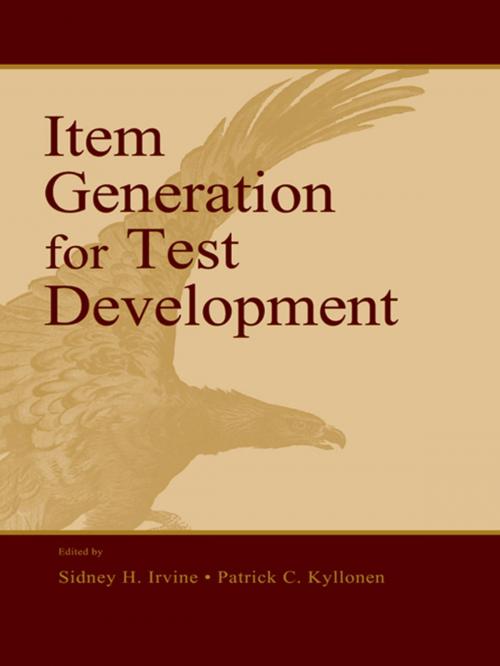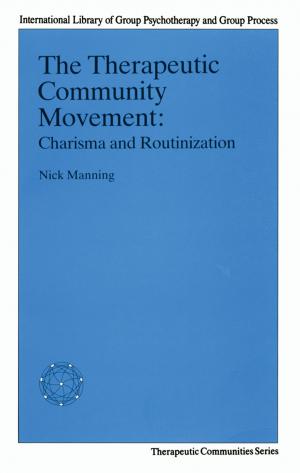Item Generation for Test Development
Nonfiction, Reference & Language, Education & Teaching, Educational Theory, Testing & Measurement| Author: | ISBN: | 9781135663193 | |
| Publisher: | Taylor and Francis | Publication: | May 13, 2013 |
| Imprint: | Routledge | Language: | English |
| Author: | |
| ISBN: | 9781135663193 |
| Publisher: | Taylor and Francis |
| Publication: | May 13, 2013 |
| Imprint: | Routledge |
| Language: | English |
Since the mid-80s several laboratories around the world have been developing techniques for the operational use of tests derived from item-generation. According to the experts, the major thrust of test development in the next decade will be the harnessing of item generation technology to the production of computer developed tests. This is expected to revolutionize the way in which tests are constructed and delivered.
This book is a compilation of the papers presented at a symposium held at ETS in Princeton, attended by the world's foremost experts in item-generation theory and practice. Its goal is to present the major applications of cognitive principles in the construction of ability, aptitude, and achievement tests. It is an intellectual contribution to test development that is unique, with great potential for changing the ways tests are generated. The intended market includes professional educators and psychologists interested in test generation.
Since the mid-80s several laboratories around the world have been developing techniques for the operational use of tests derived from item-generation. According to the experts, the major thrust of test development in the next decade will be the harnessing of item generation technology to the production of computer developed tests. This is expected to revolutionize the way in which tests are constructed and delivered.
This book is a compilation of the papers presented at a symposium held at ETS in Princeton, attended by the world's foremost experts in item-generation theory and practice. Its goal is to present the major applications of cognitive principles in the construction of ability, aptitude, and achievement tests. It is an intellectual contribution to test development that is unique, with great potential for changing the ways tests are generated. The intended market includes professional educators and psychologists interested in test generation.















